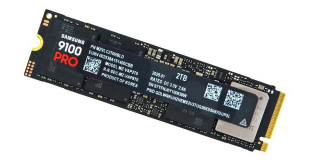For testing, the drives are all wiped and reset to factory settings by HDDerase V4. We try to use free or easily available programs and some real world testing so you can compare our findings against your own system.
Cache drives only store the information you access regularly so they take more than a single run of a program or benchmark to show performance increases. We will therefore be showing the performance after three runs.
Test System:
- Processor: Intel Core i7 3770K
- Motherboard: ASRock Z77 Extreme6
- Memory: 8 GB Kingston HyperX Genesis 1866 MHz
- CPU Cooler: Cooler Master TPC 800
- Graphics card: Radeon HD 6950
- Power supply: Corsair GS800
- OS: Windows 7 Home Premium 64 Bit
Comparison Drives
- 240 GB Intel 520 Series
- Seagate Barracuda 7200.14 ST3000DM001 with 30 GB Corsair Accelerator cache
- Seagate Barracuda 7200.14 ST3000DM001 with 60 GB Corsair Accelerator cache
- Seagate Barracuda 7200.14 ST3000DM001
Software used:
- ATTO
- CrystalDiskMark
- PCMark 7
- Windows 7 Professional 64-bit
- Custom .BAT files
- Grand Theft Auto 4: Episodes from Liberty City
In our tests, we used our Seagate Barracuda 7200.14 ST3000DM001 as the OS drive while using the 30 GB and 60 GB Corsair Accelerator drives as a cache. These cache drives are only able to cache a maximum drive size of 2 TB so we reformatted the OS drive accordingly.
 KitGuru KitGuru.net – Tech News | Hardware News | Hardware Reviews | IOS | Mobile | Gaming | Graphics Cards
KitGuru KitGuru.net – Tech News | Hardware News | Hardware Reviews | IOS | Mobile | Gaming | Graphics Cards



Nice idea, but the price drops have killed cache drives IMO.
I still dont have an SSD in my main system, im embarassed to say